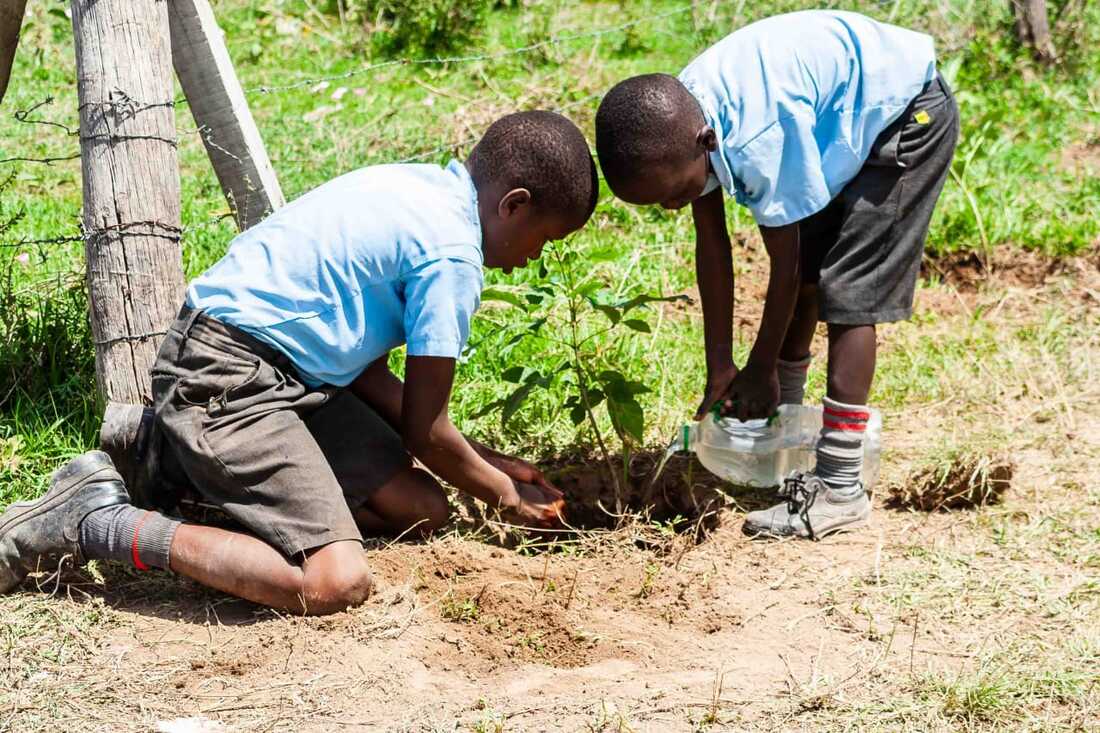
Forests contribution to climate change
When one talks of forests, what normally click into another’s mind are trees. Yes trees are largely what make of forests globally. Forests have four key responsibilities in climate change: presently they add about one-sixth of global carbon emissions when cleared, overused or degraded; they react with sensitivity to a changing climate; when managed well, they generate wood fuels as a benevolent alternative to fossil fuels; and finally, they have the potential to absorb about one-tenth of global carbon emissions expected for the first half of this century into their biomass, soils and products and store them predominantly and in eternity.
In Kyoto, Japan in 1997, the international community undertook a first, concrete step to combat global warming, agreeing to reduce net emissions by 5.2 percent below 1990 levels.
The impending role of forests in reducing of global greenhouse gas emissions is attracting substantial attention from global community. Deforestation and forest dilapidation is mostly being determined by exterior forces.
Many of these forces are closely tied to agriculture like tea, coffee, pyrethrum and others. Therefore, an isolated sectoral approach focusing exclusively on forests cannot be successful in implementing the (Reduced Emissions from Deforestation and Forest Degradation) policies.
While I was on a tour of several counties in the South Rift and Kisii respectively recently, I came across several bunch of firewood arranged at the road side on the main Nairobi Kisii highway. I was perturbed by these and took an attention towards knowing what and where the firewood was intended to be used as fuel. Shockingly, the firewood was to be used as fuel in local tea factories to process tea. Further investigation took me to the interior parts where I encountered several bunches and in large quantities. This shows how local tree species have been cut down to benefit the tea agencies.
Farmers in those areas say they sell the tree to factories in order to earn a living citing high poverty rates in the affected counties. While we acknowledge the economic contribution of the tea sector in the country, we cannot afford to witness trees being cut down to fuel factories whilst there can be alternatives of energy that can be used instead.
It is important for the Government to invest in broadening and strengthening the requisite scientific and technological capacity if the atmospheric resources are to be efficiently controlled in order to meet the ambitious targets outlined in Vision 2030. This is in respect of the useful but scarce role local knowledge and traditional management strategies play in militating against and adapting to climate change and changeability.
Global and regional (COMESA, EAC and IGAD) partnerships in training and research can help to advance the extent to which suitable innovations and technologies in climate change adaptation and mitigation are harnessed to meet the far reaching challenges in the agricultural, forestry and business sectors.
In Kyoto, Japan in 1997, the international community undertook a first, concrete step to combat global warming, agreeing to reduce net emissions by 5.2 percent below 1990 levels.
The impending role of forests in reducing of global greenhouse gas emissions is attracting substantial attention from global community. Deforestation and forest dilapidation is mostly being determined by exterior forces.
Many of these forces are closely tied to agriculture like tea, coffee, pyrethrum and others. Therefore, an isolated sectoral approach focusing exclusively on forests cannot be successful in implementing the (Reduced Emissions from Deforestation and Forest Degradation) policies.
While I was on a tour of several counties in the South Rift and Kisii respectively recently, I came across several bunch of firewood arranged at the road side on the main Nairobi Kisii highway. I was perturbed by these and took an attention towards knowing what and where the firewood was intended to be used as fuel. Shockingly, the firewood was to be used as fuel in local tea factories to process tea. Further investigation took me to the interior parts where I encountered several bunches and in large quantities. This shows how local tree species have been cut down to benefit the tea agencies.
Farmers in those areas say they sell the tree to factories in order to earn a living citing high poverty rates in the affected counties. While we acknowledge the economic contribution of the tea sector in the country, we cannot afford to witness trees being cut down to fuel factories whilst there can be alternatives of energy that can be used instead.
It is important for the Government to invest in broadening and strengthening the requisite scientific and technological capacity if the atmospheric resources are to be efficiently controlled in order to meet the ambitious targets outlined in Vision 2030. This is in respect of the useful but scarce role local knowledge and traditional management strategies play in militating against and adapting to climate change and changeability.
Global and regional (COMESA, EAC and IGAD) partnerships in training and research can help to advance the extent to which suitable innovations and technologies in climate change adaptation and mitigation are harnessed to meet the far reaching challenges in the agricultural, forestry and business sectors.


